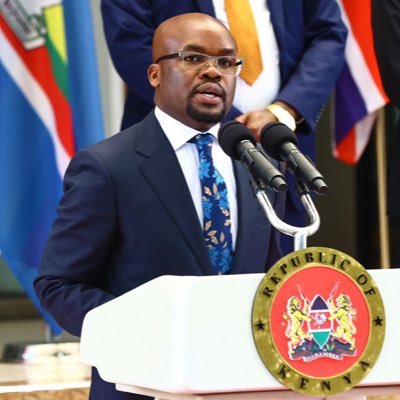Principal Secretary for Internal Security and National Administration, Dr. Raymond Omollo, has urged Kenyans to disregard misleading online claims regarding the Computer Misuse and Cybercrimes (Amendment) Act, 2024, saying many circulating interpretations are inaccurate or taken out of context.
In a statement shared on X (formerly Twitter), Dr. Omollo encouraged citizens to read the adopted Bill themselves rather than rely on media summaries or social media commentary.
He emphasized that the amendments are progressive and aim to strengthen Kenya’s capacity to combat emerging digital crimes while safeguarding citizens’ rights.
According to the Bill’s memorandum of objects and reasons, the law primarily amends the Computer Misuse and Cybercrimes Act, Cap 79C, to expand the functions of the National Computer and Cybercrimes Coordination Committee (NC4).
The committee is now empowered to issue lawful directives against websites or applications that promote child pornography, human trafficking, terrorism, or extreme religious and cultic practices.
The amendments also broaden the scope of existing cyber offences, including cyber harassment and phishing, and introduce new crimes such as unauthorized SIM-swap and cybersquatting the malicious registration of domain names similar to existing trademarks or personal names for profit or deception.
In addition, the Act criminalizes deliberate online actions that drive victims to suicide, marking an important step in addressing mental health harms linked to cyberbullying and digital abuse.
Dr. Omollo noted that the strengthened framework will promote a safer and more trustworthy cyberspace, which is essential for Kenya’s growing Digital Economy under the government’s Digital Superhighway initiative, one of the key pillars of the Bottom-Up Economic Transformation Agenda (BETA).
“This law comes at a crucial time,” he said. “A secure and trustworthy cyberspace is indispensable to digital innovation, e-commerce, online service delivery, and the protection of citizens’ data and livelihoods.”
The Bill also clarifies that it does not delegate legislative powers or limit fundamental rights and freedoms, but it does concern county governments since control of pornography is a devolved function under the Constitution.
The Ministry has encouraged the public to obtain the full text of the adopted amendments for accurate understanding and to avoid misinformation circulating online.
By Michelle Ndaga



















